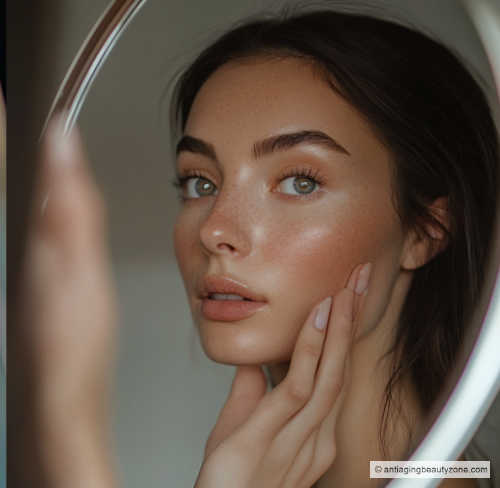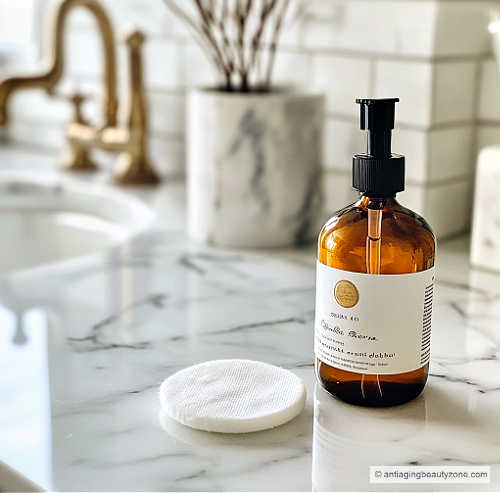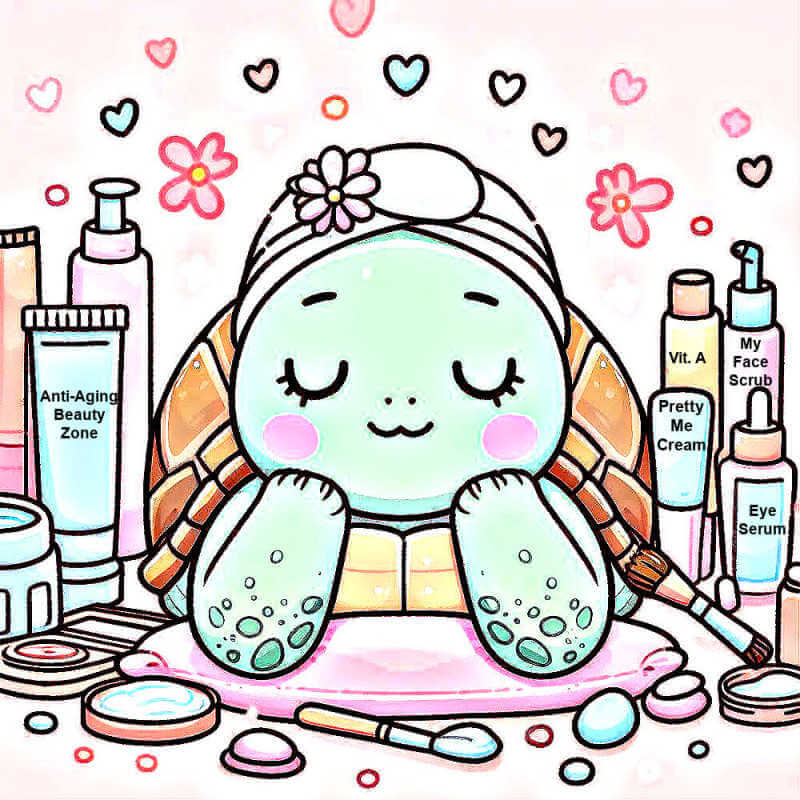- Home
- Exfoliation Guide
Benefits of Gentle Exfoliation for Skin Over 40: The Ultimate Guide
Why exfoliation matters more after 40 - without going overboard.
Exfoliation plays a quiet but important role in how skin looks over time — and that role becomes more noticeable after 40. As cell turnover slows, gently removing surface buildup helps skin look brighter, smoother, and better able to absorb the products you use afterward.
I’ll admit it — exfoliation is one of my favorite parts of skincare. I love how fresh my face looks afterward, almost glassy, like the light catches differently.
This guide looks at how exfoliation works after 40, the benefits of keeping it gentle, and the different options available — so you can decide what fits naturally into your routine.

What is Gentle Exfoliation
Gentle exfoliation means removing dead skin cells in a mild, non-irritating way. Instead of harsh scrubs, it uses soft tools, fine sugars, or low-strength acids to smooth skin and boost glow — without redness or damage.
What Happens to Skin Over 40?

After 40, skin renewal slows. Dead cells build up, causing dryness, sensitivity, and dullness — all signs that make skin look older. Gentle exfoliation clears away those layers so your complexion looks fresher and more radiant.
I love how much smoother and brighter my own skin looks after exfoliating — it’s one of the fastest ways I see results.
Types of exfoliations: Physical vs Chemical
Exfoliation removes dull, dead skin cells — and there are two main ways to do it: physical exfoliation (tools or scrubs) and chemical exfoliation (acids or enzymes). Both can be gentle if you choose the right method.
Physical Exfoliants

This type of gentle exfoliation uses tools or scrubs to manually lift away dead skin. The focus is light pressure, not aggressive scrubbing.
Tools include:
- Washcloths — one of the gentlest daily methods.
- Facial brushes — silicone bristles exfoliate, unclog pores, and boost circulation.
- Polishes — blends of fine particles and mild acids that buff and dissolve buildup.
- Dermaplaning — a sterile blade removes dead skin and peach fuzz; at-home versions are gentler than pro treatments.
Scrubs (also a type of physical exfoliation) include:
- Gentle sugar scrub for face — beginner-friendly, easy to make.
- Turmeric face scrub recipes — brightening blends with anti-inflammatory benefits.
- Korean face scrub at home — inspired by enzyme and rice-based traditions.
- Benefits of coffee for skin — what caffeine can do for circulation, firmness, and glow.
If you love experimenting with homemade skincare, you can browse more of my scrub and mask recipes for glow-boosting ideas.
Chemical Exfoliants

Chemical exfoliants use acids or enzymes to dissolve dead cells. They include:
- AHAs (like glycolic & lactic acid) — smooth, hydrate, and brighten.
- BHAs (salicylic acid) — oil-soluble, unclogs pores, calms acne-prone skin.
- Enzymes (papaya, pineapple) — mildest option, great for sensitive skin.
Choosing the right one for your skin
Picking the right exfoliant is the key to seeing results without irritation. Here’s a quick guide:
- Dry or sensitive skin — start with lactic acid (my personal go-to). It smooths gently while adding moisture. Fine-textured sugar scrubs with brown or coconut sugar can also work.
- Combination or normal skin — alternate lactic and glycolic acids, or use a blend. This balances dryness, dullness, and fine lines. (I use this mix myself and notice a big boost in glow.)
- Oily or acne-prone skin — try salicylic acid (BHA). It clears pores, calms breakouts, and tackles fine lines at the same time. If your main struggle is visible pores or blackheads, see how to minimize pores with simple at-home steps
Not sure where to start?
Go mild: A lactic acid toner, a soft washcloth, or a silicone facial brush. You’ll get a glow boost without the risk of overdoing it.
ABZ Tip: Save stronger exfoliants (like scrubs or acids) for once or twice a week. Gentle daily tools are often enough to keep skin smooth.
Benefits of exfoliation
Gentle exfoliating provides several benefits, especially for those over 40. Here’s what you can expect:
- Brighter complexion
- Reduction of fine lines
- Smoother texture
- Better absorption and penetration of anti-aging serums and moisturizers
- Clearer pores
- Even tone and reduction in sun spots and hyperpigmentation
If you’re also dealing with under-eye puffiness or loose skin, I tested a few instant tightening serums and compared which ones actually last and which ones leave that dreaded white film.
Should you consider deeper exfoliation methods?
If you want effective exfoliation, microdermabrasion is a great choice. When done correctly, it provides deeper exfoliation to refresh your complexion and reduce dark spots.
Here are some resources on the benefits, techniques, and aftercare for this treatment.
The Basics of Microdermabrasion
Microdermabrasion vs Dermaplaning
Wondering about actives afterward? See my guide to using vitamin C after dermaplaning.
Side effects
Potential Drawbacks of Exfoliation
Even gentle exfoliating can cause problems if overdone:
- Dryness or irritation
- Redness or sensitivity
- Increased sunburn risk — always use sunscreen
Takeaway: Make gentle exfoliation a part of your routine
Gentle exfoliation routines are very important if you're over 40. And they can truly change how your skin looks and feels — brighter, smoother, and more refreshed.
I’ve seen the difference myself, and it’s one step I never skip. Just remember: consistency matters more than intensity. Use what your skin tolerates, don’t overdo it, and always follow with sunscreen.
Want More?
I share quick routines, beauty tweaks, and what’s working for me — straight to your inbox. Join the Club and get this free Cheek Shaper Video.
About the Author:
Linda Robison is a Facial Fitness Specialist and the founder of Anti-Aging Beauty Zone. With decades of hands-on experience, she shares practical, natural ways to lift and brighten mature skin—without expensive or invasive treatments.
Before you go ....
Please tap on the💙in the bottom right corner if you found this page helpful.
FOLLOW ME FOR MORE TIPS:
SHARE OR SAVE FOR LATER:




